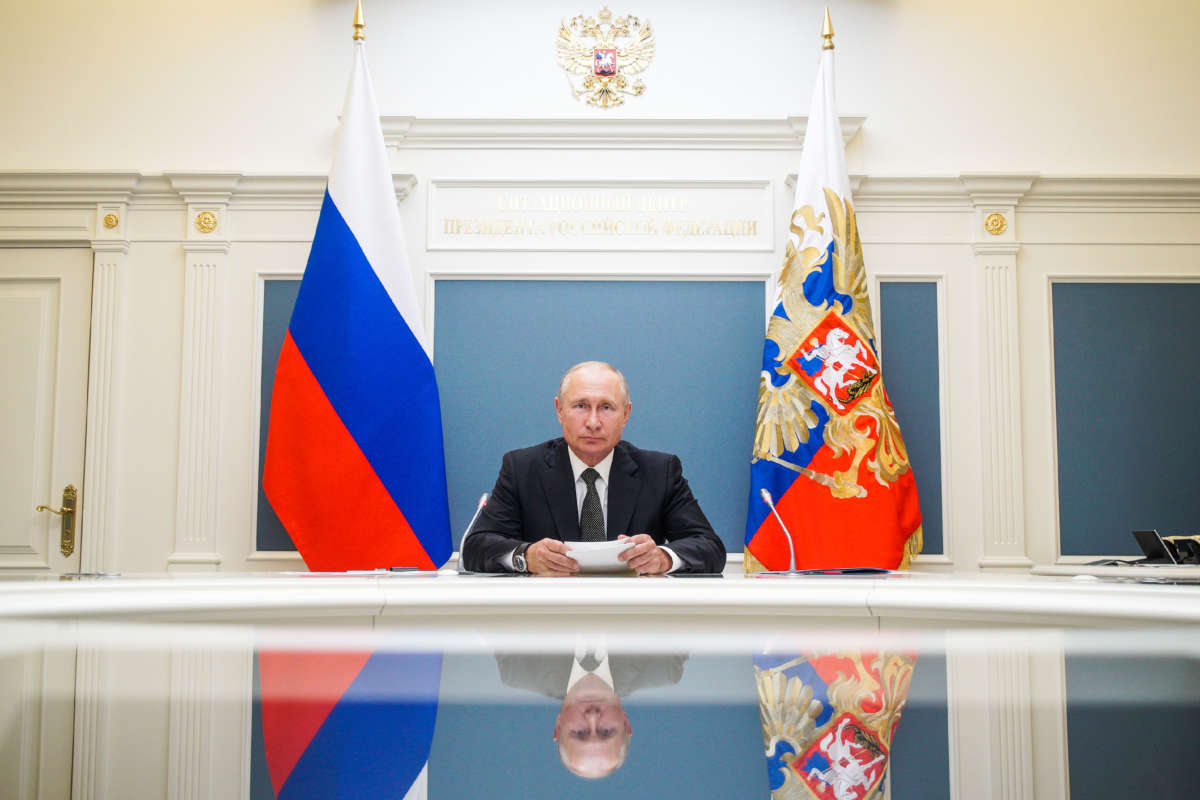Russian President Vladimir Putin announced that his country has created a coronavirus vaccine, adding that his own daughter has already taken it.
“I know it has proven efficient and forms a stable immunity, and I would like to repeat that it has passed all the necessary tests,” Putin said upon announcing the vaccine.
However, experts urged caution against the Russian president’s claims, noting that the vaccine he is pushing did not go through the same rigorous standards that other nations are putting their COVID-19 vaccines through. Russia skipped, for example, Phase 3 testing trials, which involve inoculation of thousands of test participants to examine them for possible side effects and efficacy before going to the public.
A vaccine that hasn’t been tested enough could have negative consequences, including causing medical harm to a large percentage of the populace. It could also simply be ineffective at preventing COVID-19, which could cast doubts about future vaccines that are developed. Many believe, at this point, a vaccine is inevitable, but how well it works won’t be known until Phase 3 testing is completed.
Three nations are currently either in or about to enter the third phase in testing a vaccine against COVID-19: the United States, the United Kingdom, and China. Sixteen other nations are in the clinical phase of testing.
The announcement from Russia was greeted with widespread skepticism. Former Food and Drug Administration (FDA) Commissioner Scott Gottlieb tweeted his misgivings on Tuesday morning.
“Russia was reported to be behind disinformation campaigns to sow doubts in U.S. about our Covid vaccines,” Gottlieb noted, “and today’s news that they ‘approved’ a vaccine on the equivalent of phase 1 data may be another effort to stoke doubts or goad U.S. into forcing early action on our vaccines.”
Epidemiologist and health economist Eric Feigl-Ding also tweeted his mistrust of Putin’s announcement, insisting that their vaccine wasn’t tested vigorously enough.
“Phase 3’s larger sample size allows much better study of safety signals & in [a] wider range of patients. Waiting for P3 will allow greater confidence,” Feigl-Ding explained.
Criticism came from within Russia, too, with Svetlana Zavidova, executive director of Russia’s Association of Clinical Trials Organizations, voicing concerns.
“This is a political decision by Putin so he can claim that Russia was the first in the race to develop a Covid-19 vaccine,” Zavidova said.
Overall, COVID-19 has killed around 750,000 individuals across the globe, and more than 20 million are currently infected with the disease.
If and when a vaccine can be developed in the United States, current FDA Commissioner Stephen Hahn has said it will go through the proper steps before it is approved for use.
“All of our decisions will continue to be based on good science and the same careful deliberative processes we have always used when reviewing medical products,” Hahn said earlier this week.
But according to a CNN poll conducted in May, about one-third of Americans expressed doubts about a vaccine created in the U.S., too, suggesting that they would not get the vaccine even if it was widely available and not cost-prohibitive.
Skepticism grows if the eventual vaccine offered in the U.S. isn’t backed by the Centers for Disease Control and Prevention (CDC) or by coronavirus task force member Anthony Fauci. According to a recent Politico/Morning Consult poll, 43 percent of Americans say they’re more likely to accept a vaccine if Fauci endorses it, while the same percentage says they’ll be more willing to accept it if the CDC backs it up.
Conversely, the poll found that an endorsement by President Donald Trump — who a majority of respondents also said has performed poorly in responding to the pandemic so far — wouldn’t have the same impact. Only 14 percent in the poll said a vaccine backed by Trump would make them more likely to get it, while 21 percent said his endorsement would actually make them less likely to accept it (for comparison, only 10 percent said an endorsement from Fauci would make them more skeptical).
Following Putin’s announcement of a vaccine, some online also theorized that Trump may be willing to take the Russian president at his word on its efficacy, or may try to imitate him by releasing a U.S-based vaccine early.
“Guess who’s most likely to believe Putin’s BS and who’ll try to emulate it,” Harvard Law School professor Laurence Tribe wrote in a tweet, implying that the answer to his rhetorical question was Trump.
Join us in defending the truth before it’s too late
The future of independent journalism is uncertain, and the consequences of losing it are too grave to ignore. To ensure Truthout remains safe, strong, and free, we need to raise $43,000 in the next 6 days. Every dollar raised goes directly toward the costs of producing news you can trust.
Please give what you can — because by supporting us with a tax-deductible donation, you’re not just preserving a source of news, you’re helping to safeguard what’s left of our democracy.
